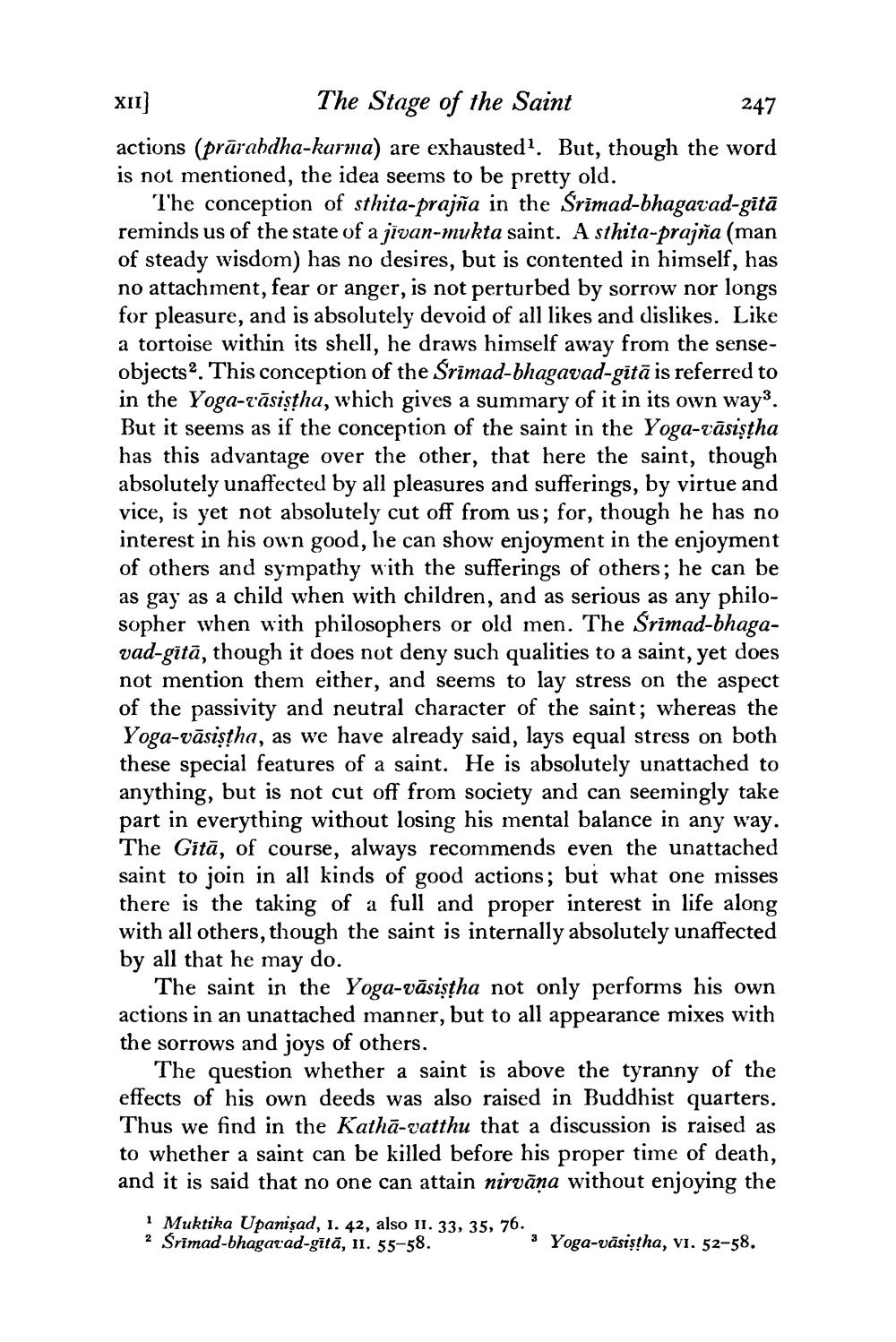________________
XII]
The Stage of the Saint
247
actions (prārabdha-karma) are exhausted1. But, though the word is not mentioned, the idea seems to be pretty old.
The conception of sthita-prajña in the Srimad-bhagavad-gītā reminds us of the state of a jivan-mukta saint. A sthita-prajña (man of steady wisdom) has no desires, but is contented in himself, has no attachment, fear or anger, is not perturbed by sorrow nor longs for pleasure, and is absolutely devoid of all likes and dislikes. Like a tortoise within its shell, he draws himself away from the senseobjects. This conception of the Śrīmad-bhagavad-gītā is referred to in the Yoga-vasiṣṭha, which gives a summary of it in its own way3. But it seems as if the conception of the saint in the Yoga-vasiṣṭha has this advantage over the other, that here the saint, though absolutely unaffected by all pleasures and sufferings, by virtue and vice, is yet not absolutely cut off from us; for, though he has no interest in his own good, he can show enjoyment in the enjoyment of others and sympathy with the sufferings of others; he can be as gay as a child when with children, and as serious as any philosopher when with philosophers or old men. The Srimad-bhagavad-gitā, though it does not deny such qualities to a saint, yet does not mention them either, and seems to lay stress on the aspect of the passivity and neutral character of the saint; whereas the Yoga-vāsiṣṭha, as we have already said, lays equal stress on both these special features of a saint. He is absolutely unattached to anything, but is not cut off from society and can seemingly take part in everything without losing his mental balance in any way. The Gita, of course, always recommends even the unattached saint to join in all kinds of good actions; but what one misses there is the taking of a full and proper interest in life along with all others, though the saint is internally absolutely unaffected by all that he may do.
The saint in the Yoga-väsiṣṭha not only performs his own actions in an unattached manner, but to all appearance mixes with the sorrows and joys of others.
The question whether a saint is above the tyranny of the effects of his own deeds was also raised in Buddhist quarters. Thus we find in the Katha-vatthu that a discussion is raised as to whether a saint can be killed before his proper time of death, and it is said that no one can attain nirvāṇa without enjoying the
1 Muktika Upanisad, 1. 42, also II. 33, 35, 76. 2 Srimad-bhagavad-gită, 11. 55-58.
3 Yoga-väsiṣṭha, VI. 52-58.




